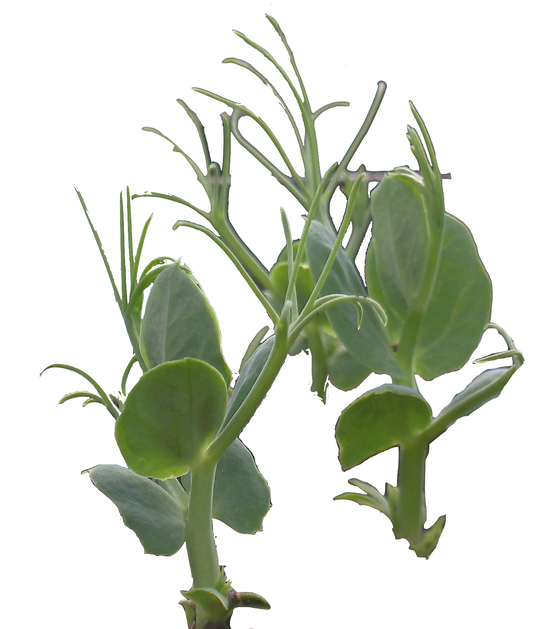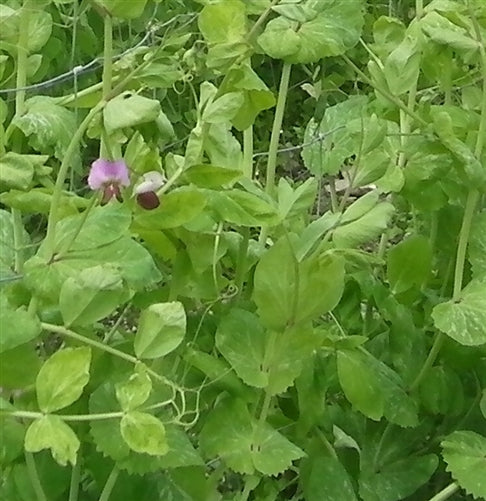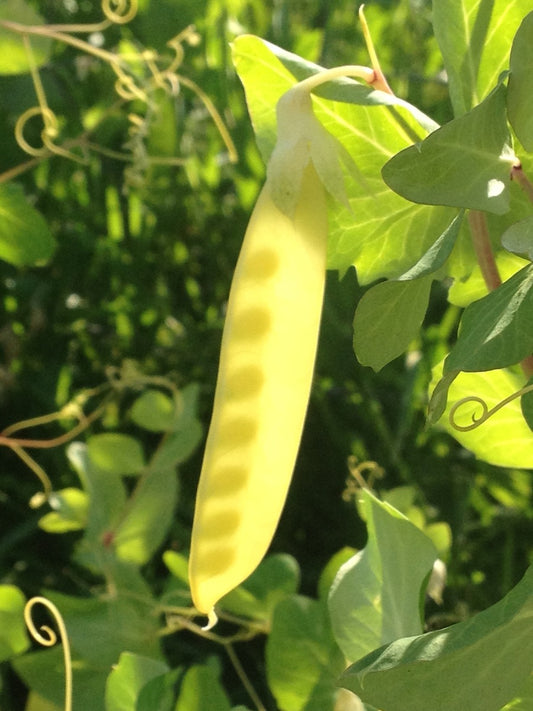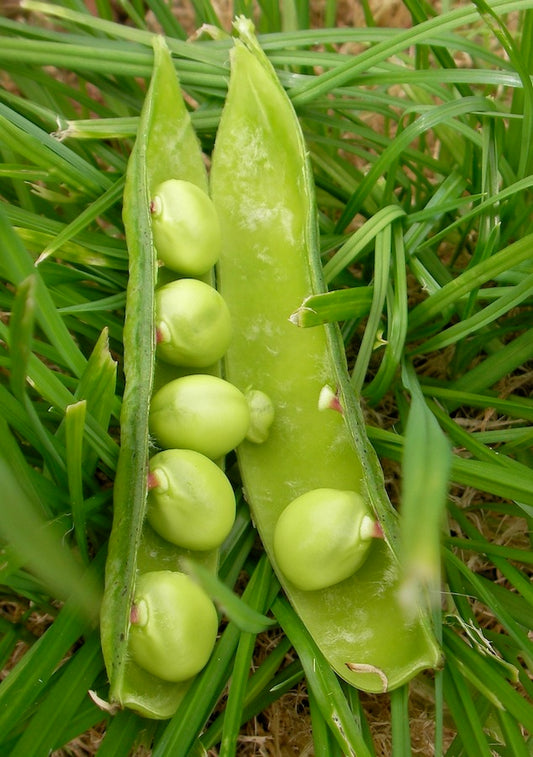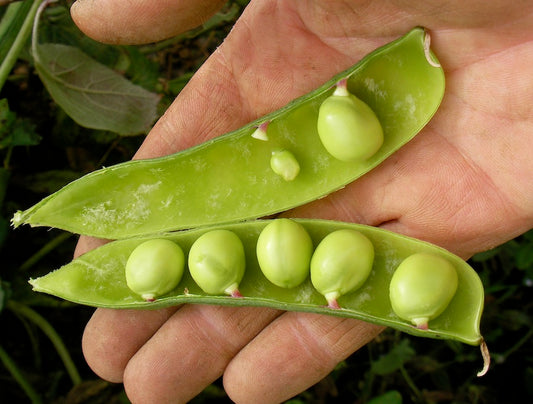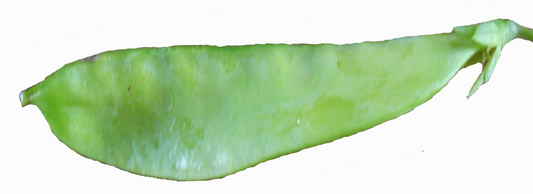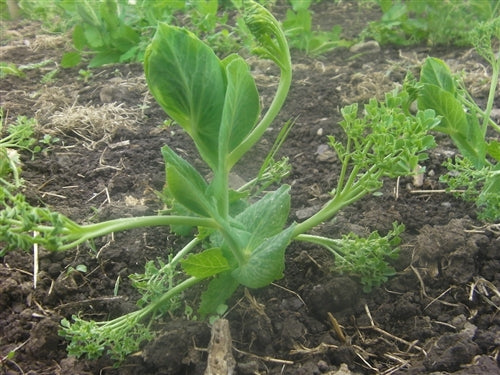Collection: Peas
Pisum sativum. Peas were domesticated in the Mediterranean basin in neolithic times. The oldest archaeological finds are from Syria about 4800BC. Peas may have come to Ireland with the first farmers about 5,000 years ago as they were being grown in France at that time. The earliest records of peas in Ireland are in an 8th century legal document. GrowingSow peas from March to June outside, and form October to February under cover, in double rows, 40cm to 60cm apart. The seeds should be about 5cm apart and 2cm deep. Peas like a moist rich soil and appreciate a generous amount of compost either dug in, or as a mulch. Beware of slugs as they can decimate emerging seedlings.
Most pea varieties need to be supported on sticks or a fence. Check the height of the variety and erect an appropriate structure. Keep well weeded. Mange tout peas should be picked when small and flat. As soon as the peas begin to swell the pods become stringy. Garden peas are best picked slightly immature before the sugar in them turns to starch. They need to be picked every day while producing. Soup peas and peas kept for seed need to mature fully. When the pods turn brown and crisp harvest them and allow them to dry completely. To test peas to see if they are really dry, hit with a hammer. If they shatter, as opposed to squash, they are dry enough to store in an airtight container. If they squash keep them in a paper bag. Peas mostly self-pollinate and will not cross with other varieties.
Most pea varieties need to be supported on sticks or a fence. Check the height of the variety and erect an appropriate structure. Keep well weeded. Mange tout peas should be picked when small and flat. As soon as the peas begin to swell the pods become stringy. Garden peas are best picked slightly immature before the sugar in them turns to starch. They need to be picked every day while producing. Soup peas and peas kept for seed need to mature fully. When the pods turn brown and crisp harvest them and allow them to dry completely. To test peas to see if they are really dry, hit with a hammer. If they shatter, as opposed to squash, they are dry enough to store in an airtight container. If they squash keep them in a paper bag. Peas mostly self-pollinate and will not cross with other varieties.
-
Latvian Christmas pea
Regular price €3,00Regular priceUnit price / per -
Golden Sweet
Regular price €3,00Regular priceUnit price / per -
 Sold out
Sold out -
Mr. Bound’s Pea Bean
Regular price €3,00Regular priceUnit price / per -
Winterkefe
Regular price €3,00Regular priceUnit price / per -
Purple Podded
Regular price €3,00Regular priceUnit price / per -
Parsley pea
Regular price €3,00Regular priceUnit price / per -
Black Badger
Regular price €3,00Regular priceUnit price / per
Seed Categories
- Asparagus
- Aubergine
- Beans
- Beetroot, Chard and Spinach
- Broccoli, Cauliflower and Kohlrabi
- Burdock
- Cabbage, Kale and Sprouts
- Cape Gooseberry and Tomatillo
- Carrot
- Celery and Celeriac
- Cereals and Oil Seeds
- Oats
- Corn and Sweetcorn
- Courgettes, Gourds, Pumpkin and Squash
- Cucumber
- Fennel
- Herbs
- Leeks and Onions
- Lentils
- Lettuce
- Melons
- Onions
- Parsnip, Burdock and Scorzonera
- Peas
- Peppers and Chillies
- Quinoa and Amaranth
- Radishes
- Salad Leaves
- Salad Mixes
- Tobacco
- Tomatoes
- Turnips and Swedes
- View All Categories
